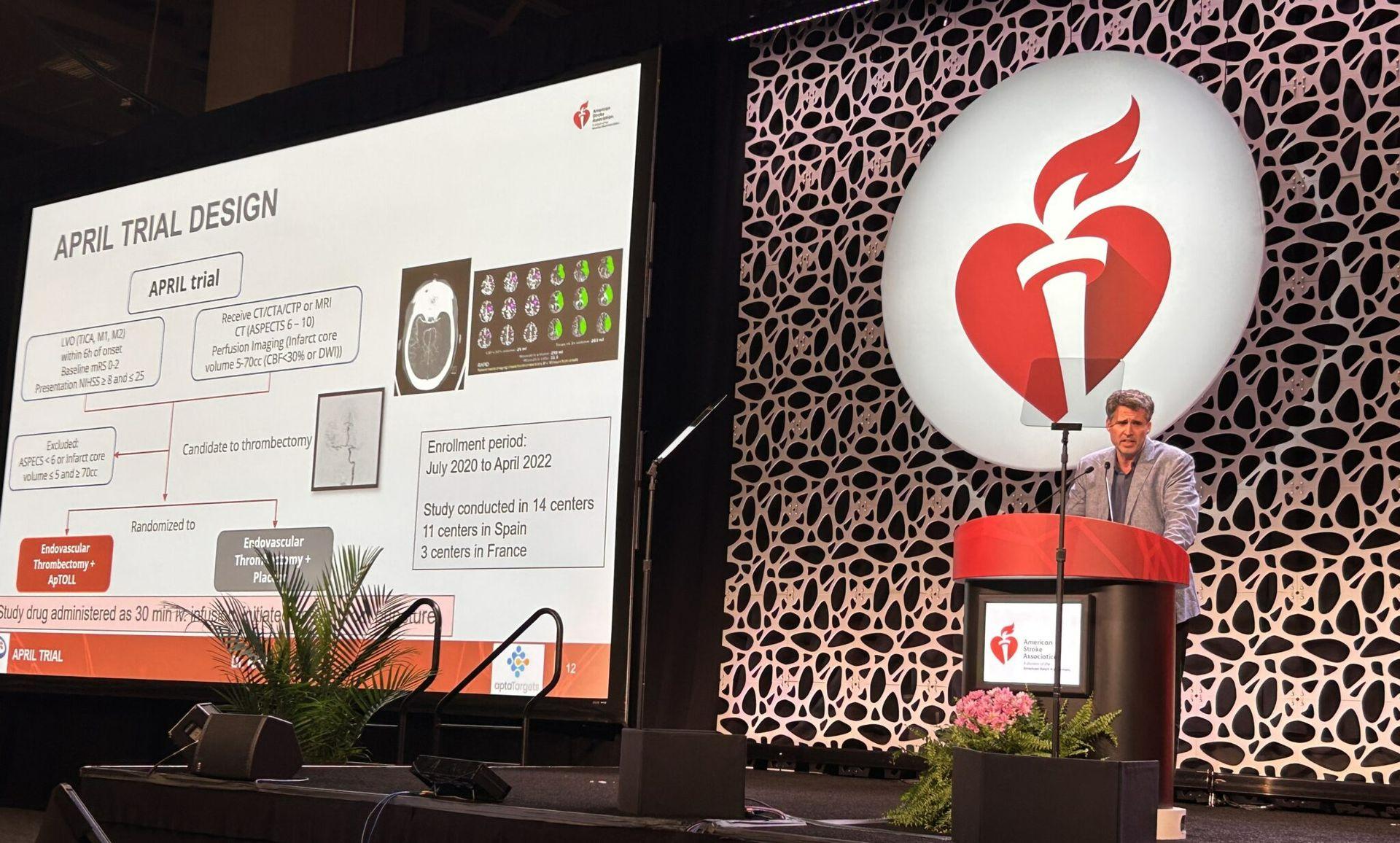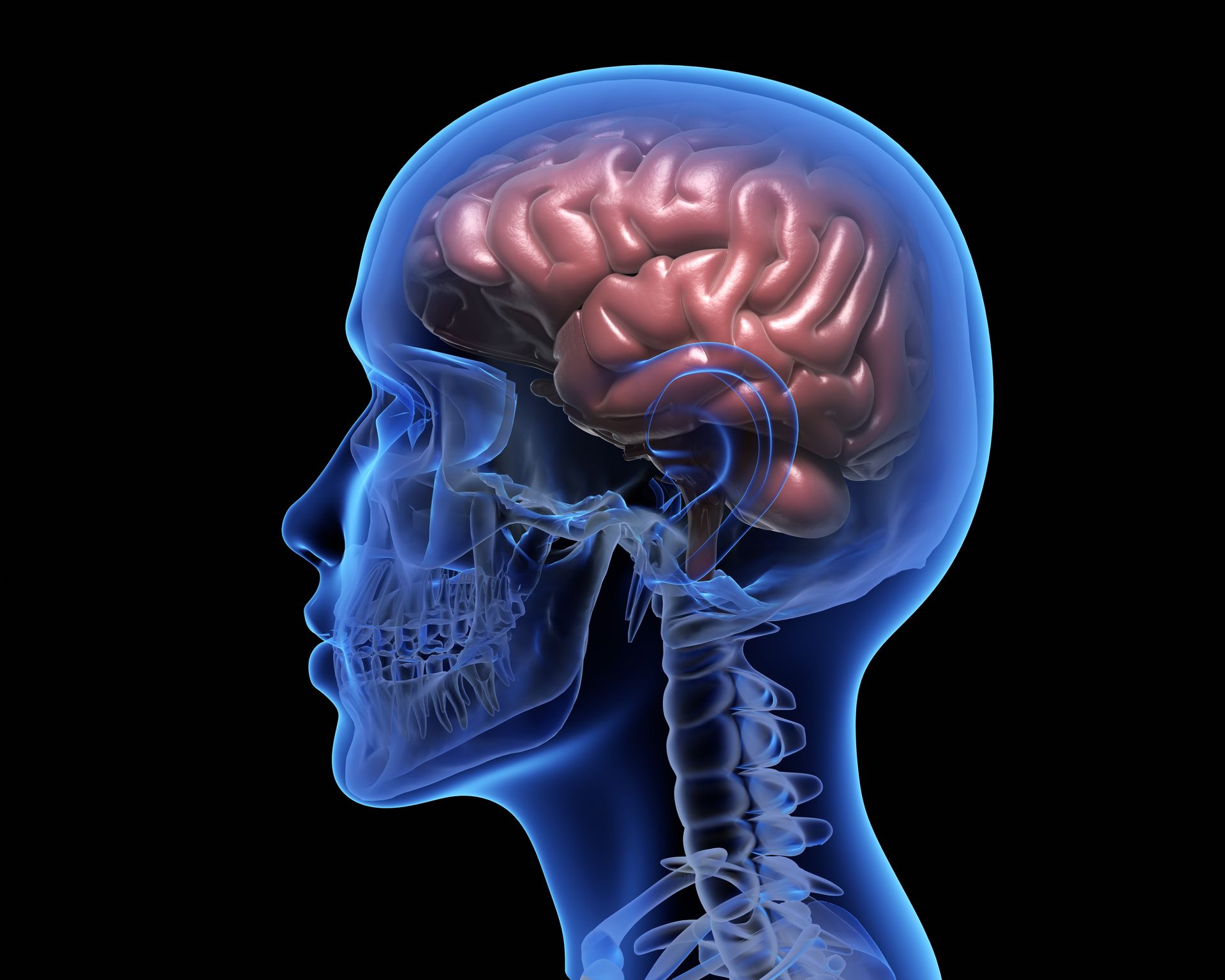ApTOLL, a novel medication potential to protect the brain from tissue damage, has been linked to reduced death and progressive disability among patients treated for a stroke.
 Marc Ribó presenting at ISC 2023| Source: NeuroNews International
Marc Ribó presenting at ISC 2023| Source: NeuroNews International
During the American Stroke Association’s International Stroke Conference 2023 in Dallas, Dr. Marc Ribo, an interventional neurologist at Hospital Vall d’Hebron in Barcelona, Spain, shared that the clinical trial showed promising results as its the first neuroprotectant to “demonstrate not only biological benefit by reducing the volume of damaged brain tissue, but also a reduction in long term disability and risk of death”.
ApTOLL is characterized as a TOLL-like receptor 4 (TLR4) antagonist that influences immune responses, and yet also responds to tissue damage. Several studies in animals found ApTOLL to reduce inflammation and protect brain tissue from damage.
The clinical trial investigated if ApTOLL can improve outcomes among people with stroke who received standard treatment. The trial was participated by 150 adults diagnosed with stroke (aged 70 years) who are randomly assigned to either 0.05mg/kg of ApTOLL, 0.2mg/kg of ApTOLL, or a placebo.
Prior to symptom onset, participants also received standard ischemic stroke treatment that allows the restoration of blood flow to the brain through its mechanical blood clot removal properties. The treatment which is endovascular therapy involves the insertion of a tiny tube into the blood vessel to retrieve the blood clot. Findings include:
- The higher ApTOLL dose showed a neuroprotective effect while the lower dose did not show any effect compared to the placebo.
- Ninety days after treatment, death rates among participants who received the higher dose of ApTOLL were more than four times lower compared to those who received a placebo: 4% versus 18%, respectively.
- Imaging tests given 72 hours after treatment showed that the size of damaged brain tissue was reduced by 40% among the participants who received the higher dose of ApTOLL compared to the placebo group.
- 64% of participants who received the higher dose of ApTOLL were free of disability at 90 days, compared to 47% of those in the placebo group.
The researchers aim to confirm similar results by expanding the study as the current limitation of the study is its small number of participants.
“If the results are confirmed with larger studies, it will mean that we can effectively treat patients with neuroprotectants, in addition to current standard treatments to restore blood flow,” said co-lead author Macarena Hernández, Ph.D. “Both kinds of treatments may be combined, and neuroprotectants will buy time, reducing brain damage until blood flow is restored.”
Stroke, the fifth-leading cause of death in the United States, continues to affect more than 160,000 U.S. deaths in 2020, as per American Heart Association Statistics. A stroke is a brain attack that occurs when the blood supply to a part of the brain is blocked or when a blood vessel in the brain bursts. It could lead to lasting brain damage, long-term disability, or could be fatal.

Read the developing story here.
To know more about breakthroughs in life sciences and R&D, connect yourself to thousands of experts, managers, directors, and companies in neurological labs. Achieve your goals by having the right partners with you. Discover the larger clinical community today.